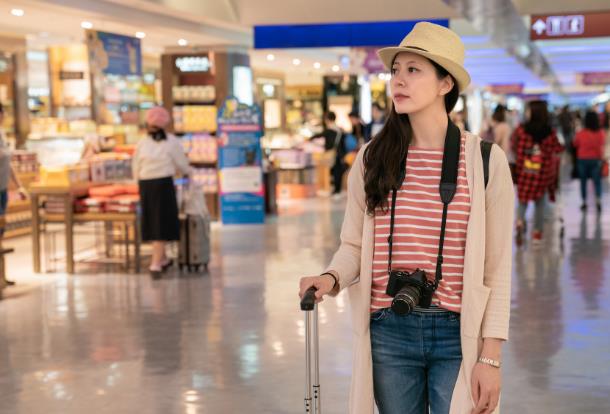Chinese outbound tourists' shopping spend fell as a percentage of overall travel expenditure in 2016, according to Prepare for Turbulence: The Chinese Traveler of Today and Tomorrow, a report by global consulting firm Oliver Wyman.
Average trip spend rose 3.5% last year, according to the report, but expenditure on shopping declined from 41% to 33% of total trip expenditure in the same period.
The report reveals that shopping dropped from the second-biggest motivation for traveling to the third, behind sightseeing and recreation. The decline was mainly driven by decreased shopping for resale – the so-called "Daigou" market – which fell from 8% to 3% year-on-year.
The number of outbound Chinese travelers is expected to reach 150 million in 2017, according to Hunter Williams, Oliver Wyman Partner and author of the report.
"Chinese travelers continue to shift their spending towards more meaningful experiences such as exquisite dining, extraordinary cultural journeys, nd even adventurous sports,” said Williams.
Travelers who rank shopping as the main reason to travel are generally from lower income brackets than those who rank shopping as the second and third motivations to travel, the report noted.
The report reveals major shifts in the tastes of Chinese travelers, who are becoming more independent as they become more sophisticated.
“Cookie cutter” holidays have greatly declined in popularity as a result – fewer than 1 in 40 holidays were mostly planned by travel agents in 2016 vs. more than 1 in 7 in 2015.
“They are also staying longer in distant locations, traveling more with their families and even spending less on shopping,” wrote Williams.
“Chinese travelers rely heavily on online reviews, especially when they go overseas. TripAdvisor alone isn’t enough: customers look for reviews on Chinese-language platforms such as Mafengwo, Dianping, Tuniu, Qyer, and Lvmama.”
The report said that twice as many trips were made domestically in 2016 compared to 2015, with over 90% of respondents making at least one domestic tourism trip in the past 12 months.
With long-haul destinations becoming more popular among Chinese tourists, Oliver Wyman said it expects that a greater proportion of spend will be allocated to accommodation, dining and entertainment, while shopping spend as a percentage of overall travel spend is likely to continue to decline.
Read original article




